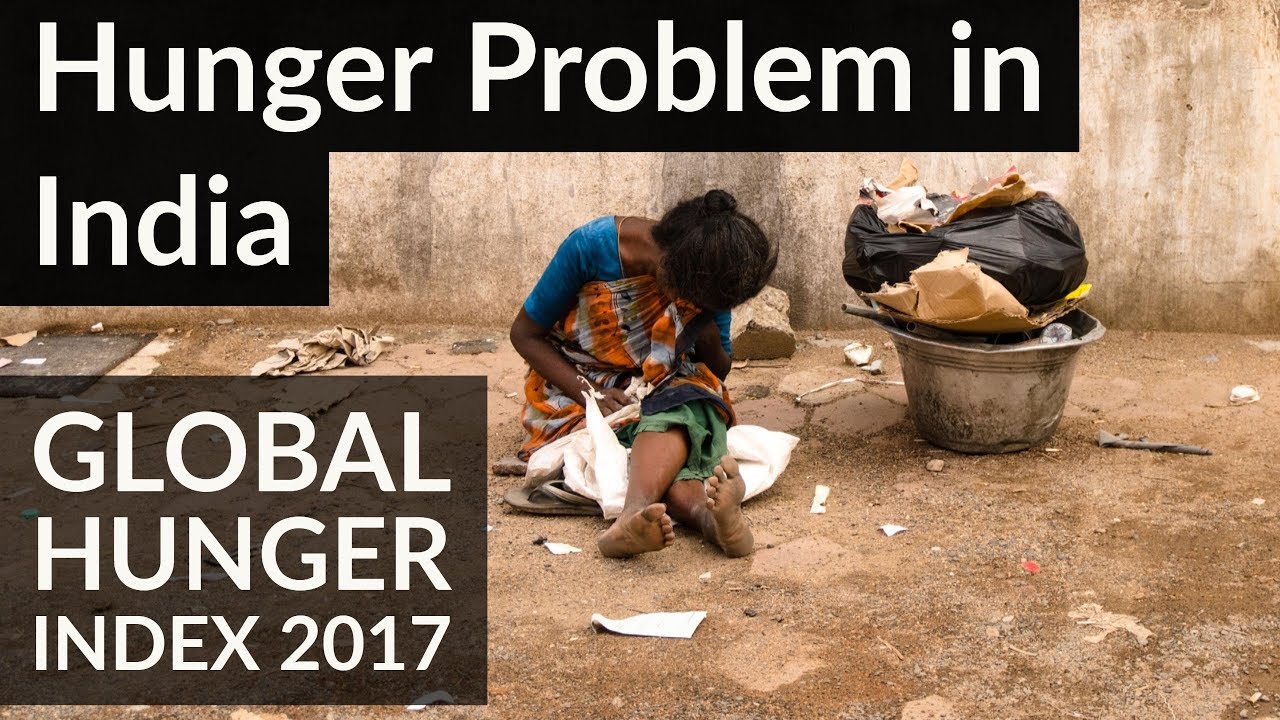Stunted Spectres

 India is the land of hungry children: high growth and wasting bodies. One main reason for this is the present Government's drastic cut in budget allocation for Integrated Child Development Services (ICDS) and Mid-day Meal Programme. ICDS is a programme which provides food, preschool education, and primary healthcare to children under 6 years of age and their mothers. Mid-day Meal Programme is by far the largest nutrition programme in the world. Cutting down on the budget on both ICDS and Mid-day Meal has lead to high percentage of child wastage and stunted growth in Indian population. This year's Union budget for school midday meals is 18 per cent less than in 2013-14. This is a misnomer for a government which drum-beats the slogan "Saab Kaa Saath, Saab Kaa Vikas" and calls itself an all-inclusive government. Our super-rich being mentioned on the Forbes list does not mean food and healthcare are guaranteed for all citizens.
India is the land of hungry children: high growth and wasting bodies. One main reason for this is the present Government's drastic cut in budget allocation for Integrated Child Development Services (ICDS) and Mid-day Meal Programme. ICDS is a programme which provides food, preschool education, and primary healthcare to children under 6 years of age and their mothers. Mid-day Meal Programme is by far the largest nutrition programme in the world. Cutting down on the budget on both ICDS and Mid-day Meal has lead to high percentage of child wastage and stunted growth in Indian population. This year's Union budget for school midday meals is 18 per cent less than in 2013-14. This is a misnomer for a government which drum-beats the slogan "Saab Kaa Saath, Saab Kaa Vikas" and calls itself an all-inclusive government. Our super-rich being mentioned on the Forbes list does not mean food and healthcare are guaranteed for all citizens.
The objectives of the Mid–day meal scheme are:
- Improving the nutritional status of children in classes I–V in Government, Local Body and Government aided schools, and EGS and AIE centres.
- Encouraging poor children, belonging to disadvantaged sections, to attend school more regularly and help them concentrate on classroom activities.
- Providing nutritional support to children of primary stage in drought affected areas during summer vacation.
No wonder India is high on the 2017 Global Hunger Index list (100 out of 118 countries) due to drastic reduction in the budget allocation. The whole approach of the current dispensation seems to be lopsided, which is detrimental to the good founcation of the human resource of the country. In this article, Professor Emeritus Sukanta Chaudhuri dissects in a clinical manner, India's performance on the Global Hunger Index and Human Resource Development. Isaac Gomes, Asso. Editor, Church Citizens' Voice.
THE TELEGRAPH, CALCUTTA
SUKANTA CHAUDHURI
1st November 2017
Forty years ago, I read a draft travelogue of an Englishwoman in India.
She claimed that in Mumbai's wealthiest neighbourhood, she was kept awake at night by the cries of starving children. When I challenged this blatant untruth, she said her London publisher demanded such embellishments in a book on India.
Like many patriotic Indians, I have dutifully crossed swords with Westerners over their vision of India as the world's starvation hub. I have talked of our progress since Independence, of growth and development, industry and the green revolution. Everything I said was true, drawn from textbooks, official releases and my own experience. Today I can usually rest my vocal cords, for the world is convinced of India's growing power and prosperity.
I too cannot but be convinced, for I belong to Bengal's post-Partition generation. In my childhood, Sealdah station resembled today's scenes from Sudan or Somalia. I will not speak of the hell of the refugee camps. Since the 1980s, Bengal has pulled itself up by its bootstraps.
India as a whole has battened on the pickings from a compliant economic and political order. Our growth rate is impressive even after the recent debacle. Our super-rich adorn the Forbes list. The middle class, while professing economic martyrdom, has not fared badly either.
The affluent would argue that even the poor never had it so good. There are schemes to endow them with the bounty of the toiling taxpayer. It's decades since we had a proper famine, and perhaps now never will. Amartya Sen ascribes the change to India's democratic structure and free press. We can thus argue, in Sen's despite, that these institutions have served their purpose and can be dismantled. Moreover, we can reduce State bounty to the poor.
There are endless obstacles to this agenda. Two sprang recently from opposite ends of the global spectrum. The International Food Policy Research Institute (IFPRI) released its Global Hunger Index, placing India 100th among 119 nations; and 11- year-old Santoshi Kumari died, of starvation or something masquerading as such, in a Jharkhand village.
Statistically, one death means nothing. All other children in India might be growing plump on ghee and sugar (perish the thought of meat or eggs). Experience suggests otherwise, and the IFPRI report demolishes the notion. There is bodily wasting in 21 per cent of our children and stunted growth in 38 per cent. Three out of 20 Indians go hungry to bed.
We have removed the 'hunger mountains' of famines to spread hunger and debility more evenly, sustainably and, shall we say, acceptably through much of our population.

The figures have not been credibly contested.
To plead the growing number of countries surveyed (119 countries) is absurd. Prosperous nations are left out anyway: the 'competition' is between poor and poorer. Between 1992 and 2017, countries that have outstripped India, having started behind or at par, include Bangladesh, Myanmar, Cambodia, Nigeria, Malawi, Mozambique, Togo and Burkina Faso. In all except the last, the numbers of the hungry have lessened by around 50 per cent; in Myanmar, Vietnam and Ghana by 60 per cent; in China by 71 per cent. Even Burkina Faso managed 41 per cent against India's 33 per cent.
A Bengali newspaper has tracked India's ranking in percentile terms: down from 72 in 2014 to 84 in 2017. A particular government has ruled India during these years. But the figures relate largely to the present Opposition's years in power; even the current position originates from that time. In 2013, India's hunger index was 'alarming'. Today it is merely 'at the high end of the serious category', though set to revert to 'alarming' by 2030.
No party can plead innocence. The starvation deaths in Bengal's Amlashol occurred after 28 years of communist rule. But our present rulers in Delhi scorn even their predecessors' gestures of concern. In their first budget, they proposed to cut the Integrated Child Development Services budget by 50 per cent. They could not quite manage that, but made repeated cuts that were barely restored this year — or not, allowing for inflation.
This year's Union budget for school midday meals is 18 per cent less than in 2013-14. This was the only meal Santoshi Kumari got each day — till schools closed for the season of happiness.

India's Mid-day Meal Programme
The ICDS provides food, day care, immunization, health checks and basic learning to pre-school children, and support for expecting and nursing mothers. The daily food allowance per child is six rupees, for severely malnourished children nine rupees — less than the cost of an affluent child's bedtime health drink. The Centre provides half this amount. It pays an ICDS worker Rs 3,000 a month, her assistant Rs 1,500, the cook Rs 600 — sums unchanged since 2011, with some insurance benefits added lately. These sums are varyingly supplemented by the states, hardly ever reaching five digits.
The system is upheld by the breath-taking fiction that these workers are not employees but volunteers. The bureaucrats who thought that one up deserve all the bounty of successive pay commissions. Health workers of Accredited Social Health Activists or ASHA get no salary at all, only modest 'incentives' geared to a monthly total of Rs 1,000. Delayed and missed disbursements are endemic. To keep the children fed, ICDS workers often take supplies on credit from local traders, their unpaid salaries pledged as security.
 Given this level of support for our poorest four crore children and one crore mothers, India's hunger index should not surprise us.
Given this level of support for our poorest four crore children and one crore mothers, India's hunger index should not surprise us.
Santoshi's death reflects at micro-level the mindless official apathy at all levels from planning to execution whereby the nation is squandering tomorrow's human resources, reducing ' demographic dividend' to a hollow catchword. When funding social support and welfare, we resemble the archetypal miser scrounging coins to stash away, instead of investing his hidden wealth for gain.
Of the human suffering I will not speak. If the thought of a starving child does not move us, purple prose will not. But we should revile, though we cannot reform, the lies, obfuscation and malgovernance marking each stage of the sorry tale, from the chief minister to the local official. In particular, we may deplore the tyranny of the Aadhaar card, whose absence prevented Santoshi's family from drawing their rations.
Two more starvation deaths have since been reported from Jharkhand; the last because, allegedly, a man was denied rations owing to a fingerprint mismatch. We did not know ration shops checked Aadhaar fingerprints, or were reliably equipped to do so. The state's food minister declared that the family had drawn their rations: if three of them hogged all the food and let the fourth starve, was the government to blame? So high-minded is the minister that he found it inconceivable, even as a hypothesis, that the dealer might have fudged the records and siphoned off the supplies.
Yet these villagers may not throw out their rulers at the next election. They may helplessly resort to a ruling-party candidate who promises them, this time round, a few more crumbs to survive on. The promise may not be kept; more children may die, or survive to endure a joyless childhood and unproductive adult life.
Most readers of The Telegraph dwell in a different world. Few of us, myself included, will change our lives a jot because one child — or a score, or a thousand — dies at a safe distance from our homes.
But as we pack our own child's lunchbox, or sit down to dinner, or join a wedding banquet, we may be vexed by stunted spectres claiming their share. The memsahib's fiction might prove our reality: lying in bed, we might hear children crying from across the land.
In a society governed by privilege, the vexation of the chattering classes often counts for more than the mute anger of the dispossessed.
We might protest that our disquiet is more than we can bear. That might be the only good we ever do our country.
The author is Professor Emeritus, Jadavpur University.
















